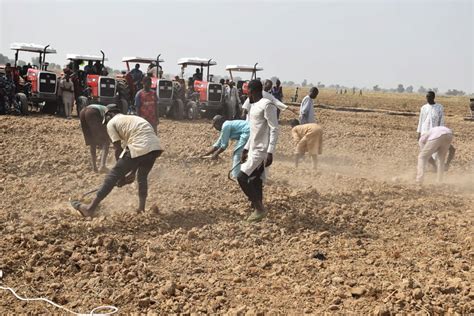Nigeria’s Minister of Finance and Coordinating Minister of the Economy, Wale Edun has disclosed that the Federal Government is set to provide funding for 360,000 farmers as part of its efforts to stabilise the economy through agricultural development. At the Access Bank Customer Forum held in Lagos, the minister stated that the move was critical for addressing inflation and ensuring food price stability; “the plan for this dry season, after a successful one, is to assist and fund 360,000 farmers.”
He further explained that the government aims to cultivate 360,000 hectares of land to produce 1.4 million metric tons of agricultural output by early 2025. “We are estimating 1.4 million metric tons by next January, February, when the harvest comes, and it’s a key success factor,” he noted.
Edun noted that as part of the fiscal outlook government revenues have doubled, but emphasised the need for tighter fiscal management and more investments in critical infrastructure.
“Let me say that in terms of fiscal management history, revenues have doubled,” he said.
Edun emphasised that stabilising food prices would help reduce inflation and set the country on the path to economic stability. “If the prices of food come down, then inflation comes down, and it sets you on the path of key stability,” he noted.
He highlighted the broader implications of agricultural growth, noting that it will aid employment generation, encourage export production, and improve fiscal management through better revenue collection. “For employment generation, encouragement for export production, and, of course, incentives and structures for stricter fiscal management,” he added.
The president of Dangote Group, Aliko Dangote also weighed in on the importance of local production, criticising the prevalence of foreign goods. “India is great today because they almost shut down their market and produced locally,” he remarked. He further expressed frustration after visiting two locations in Nigeria and finding that the biscuits offered were made in China. “I was a bit angry, all the biscuits that were given in two different locations were only made in China, which is wrong,” Dangote stated. He called for greater support for local industries to compete against foreign imports.

